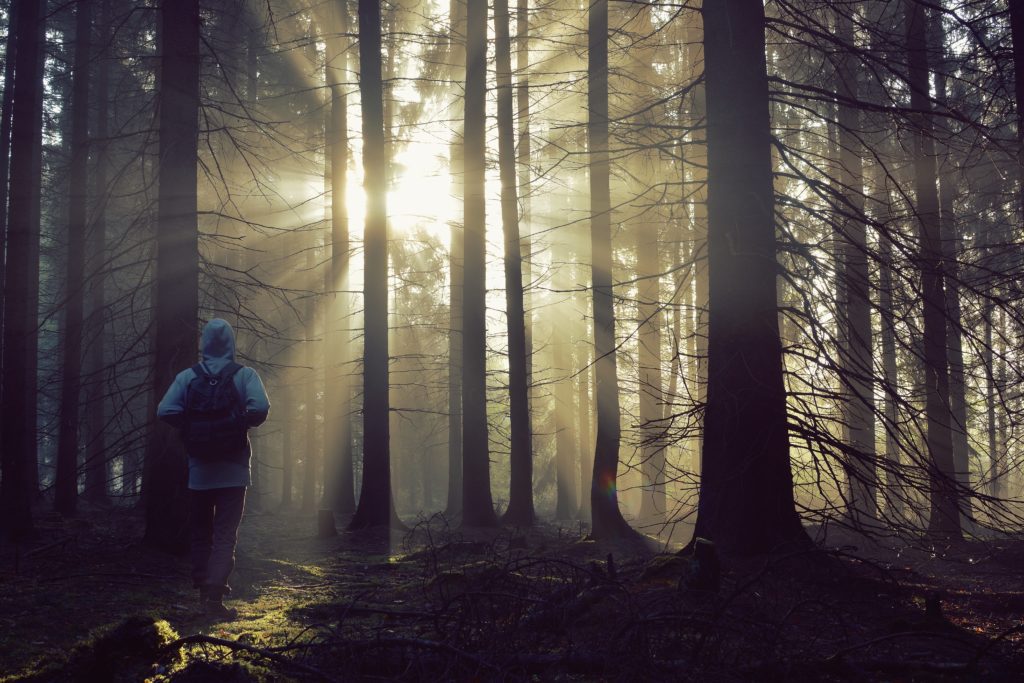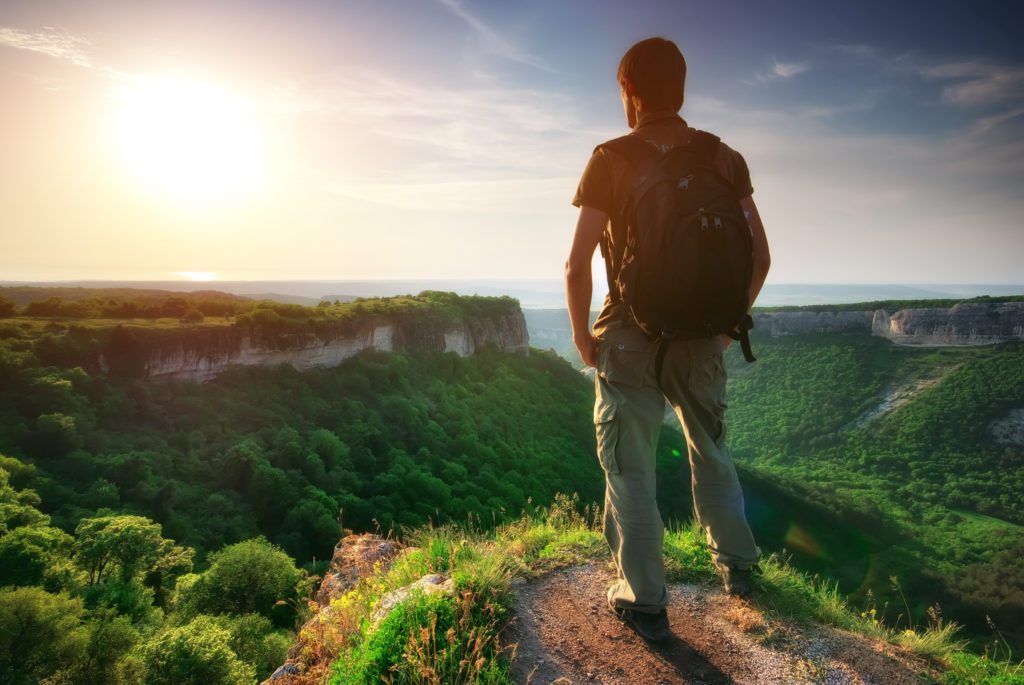I’d set out on a hike into the backcountry chasing a blue dot on a map. There was no trail into it, it was less than a mile off a heavily traveled trail near Mt. Jefferson in Oregon. The promise of rarely fished mountain trout was the draw.
I’d spent decades in the backcountry doing this. Armed with my compass, pack, map and years of experience, I made dozens of successful attempts into these types of lakes and streams and was often rewarded with outstanding fishing.
This day would be different. I can’t even share how it happened because I don’t know myself. It wasn’t overconfidence or lack of attention but it happened.
I’d found the lake and fished it for a couple of hours. There were lots of small, stunted rainbow trout to catch and when I’d had enough I decided to hike out to my rig. I started walking, picked up a game trail which made the going a bit easier than the off-trail bushwhack I’d taken on the way in, and started covering ground. After nearly an hour of walking it dawned on me that at the pace I was keeping I should be near my destination, but nothing looked familiar to me.
I was in a dense forest and I couldn’t find any landmarks.
I was lost.
In a moment I felt that swell of anxiety well up inside me as adrenalin gushed and I realized I was in a pinch.
I stopped and tried to get my bearings wondering where I’d gone wrong. I listened for traffic, voices…anything. It was dead silent.
When you’re truly lost, you have no idea where you are in relation to where you started. It’s the most helpless feeling I’ve had in the woods. Had I gone past my starting point? Hiked further away from it? If I had been going in the wrong direction then was I too far to the east, south, I didn’t know.
It was late in the day and fortunately I had everything I needed on my back.


Stop. Don’t make an already bad situation worse.
I had a lot going for me. It was early fall, perfect weather, I knew I wasn’t far from a trail. I felt confident I could self-rescue but I’d be well-served to call it a day, make camp and figure out a game plan early the next day.
With the exception of getting lost, I’d done everything right. I’d let people know where I was going and when I’d back. I had enough equipment to make it several days, even if the weather turned. And for now, I was staying put and not making things worse by hiking all night long and potentially getting hurt.
I set camp, had a nice freeze-dried meal and drink and called it a night. When morning broke, I made breakfast, packed and worked on a game plan. I just needed to get my bearings, and from there I could triangulate my position and I’d be in business.
The only water I’d seen was the small lake I’d fished and I didn’t want to chance trying to find that again. Not knowing where I was, I opted to locate a clearing at elevation so I could figure things out and find some landmarks.
I started in what looked to be a long, flat wide gully of some sort. To the south it rose quickly up a hill and, I hoped, maybe to a ridge. I went south.


The going was tough, but fortunately, the forest was pretty open with just a few blow downs to climb over. Within an hour and a half, exhausted, I found a clearing, and just as I’d hoped I’d located a couple helpful landmarks. It only took minutes to figure out where I was and it wasn’t good. I’d strayed almost 4 miles from where I’d started and it was going to be grueling getting back.
I hiked out and in the last ¼ mile, and picked up the trail I started on. Just as reached my rig, a few friends had just arrived and were getting ready to start a search party. Fortunately, I arrived when I did and saved myself further embarrassment.
I was completely spent but grateful to have figured things out on my own.
My self-rescue strategy was not typical but it worked.
Generally, finding a large clearing and staying put so rescuers can find you is one way to do it. Another is to find a stream or river and follow it downstream. The strategy is small streams turn into bigger streams and you’re likely to find a road or people.
In all cases, having signaling gear, a whistle, mirror, blue tarp, are great tools in assisting in your rescue.
Your most valuable tool though is your good sense. Listen, calm down and overcome the adrenalin, don’t make things worse than they already are and take every precaution to not get hurt. You really set yourself back with an injury, and that injury can be the precursor to creating even bigger problems that can ultimately lead to death.
Certainly, when the weather turns the odds begin to stack up against you. Exposure at any time of the year is an issue but when the temperatures drop or rain or snow set in a bad situation gets worse. That’s why keeping your head, resisting the urge to panic and ticking down a list of “to-do’s” that starts with shelter, then warmth, water and food is essential.
In a previous blog entry on “10 Essentials” we discuss the need to always go into the backcountry prepared. As important is HOW to use these “essentials”. Taking the time to learn how to set-up a lean-to or tarp as shelter, how to make fire using a matchstick and striker and knowing how to purify water are all excellent skills you’ll need if you get lost.
Also, you’ll be well-served to attend one of Brett Stoffel’s survival seminars at either the Washington Sportsmen’s Show or Pacific Northwest Sportsmen’s Show. His advice can spell the difference between success and failure if you end up lost and need to hunker down until you’re found.
Trust me, I hope you never find yourself in that awful predicament where the reality of having no idea of where you are sets in and you’re miles from a trail and even further from humanity. I know from firsthand experience what that sinking feeling is like and how desperate it feels. I was fortunate to have walked out, you may be too, but in the event you can’t or don’t walk out hopefully you’ve let someone know where you’re going and when you’ll be back and you have the necessary equipment to survive and get found.